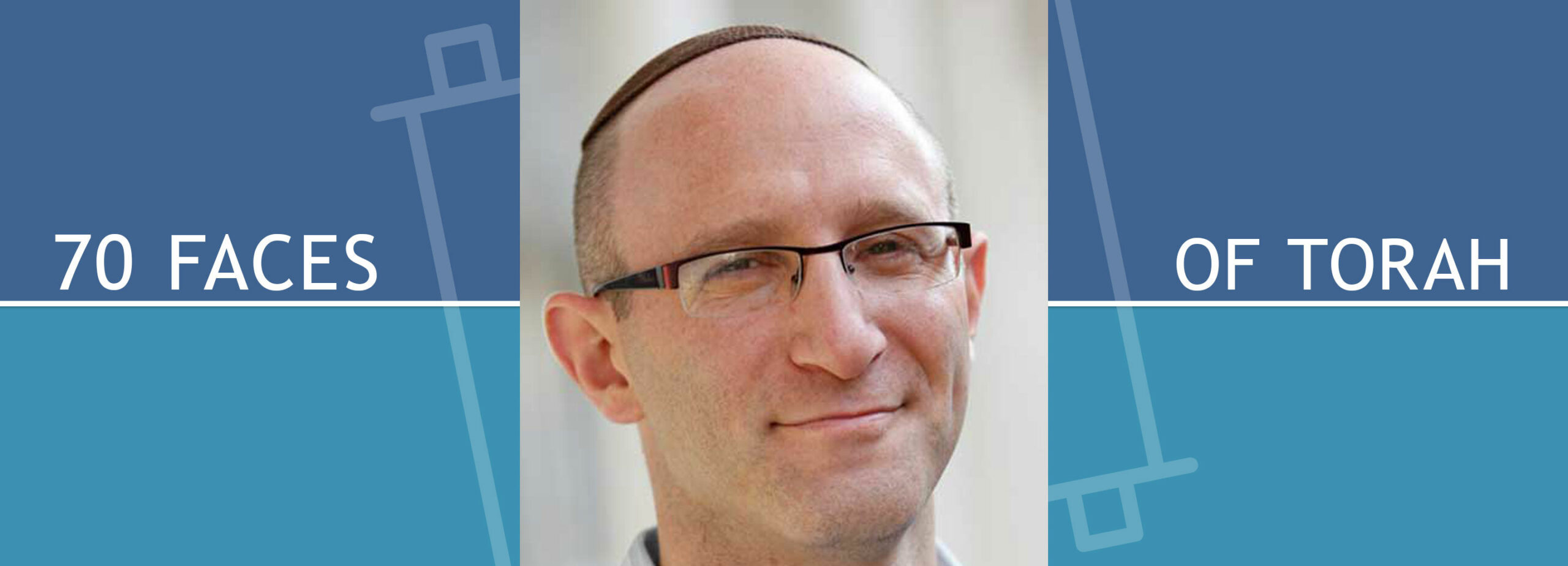Deuteronomy We Don’t Live by Bread Alone

Parashat Eikev (Deuteronomy 7:12-11:25)
In L.A., nobody touches you. We’re always behind this metal and glass. I think we miss that touch so much that we crash into each other just so we can feel something. (Paul Haggis’ Crash)
With these opening lines, the movie Crash captures a truth about the human condition – we need each other. For practical, emotional, spiritual reasons and more, we are meant to be in relationship. The Bible expresses this idea in the opening verse of the Torah when God declares, after continually proclaiming the works of creation to be “good,” that for the singular created human being, it is “not good to be alone” (Genesis 2:18).
In fact, says modern science, we need to be with others for our health. According to Shankar Vedantam on his podcast Hidden Brain, numerous studies have shown that people with “strong social relationships had about a 50 percent lower mortality risk than those with weaker ties.” He refers to a study by BYU researcher Julianne Holt-Lunstad that concludes, “Those with weaker social relationships had a greater risk of death than people who were physically inactive or obese. Let me put that another way. Spending time building and nurturing your friendships might be just as important to your health as eating right and exercising.”
We are meant to be in relationship and as Crash depicts, we are so often isolated and desperate to be with others. In modern society, loneliness and isolation, being trapped in our metaphorical cars on the LA freeway of life, has become, according to the Dr. Vivek H. Murthy, the previous surgeon general, an “epidemic” as various studies show that anywhere from a quarter to nearly a half of the population reports being lonely.
Parashat Eikev, our parasha this week, is preoccupied with the human tendency towards isolation. The frame in the parasha is on the ever- present danger of being ensnared in the fallacy of autonomous self-sufficiency, and the resulting disconnection from God that occurs.
Deuteronomy 11:13-17, which is part of the second paragraph of the shema and comes towards the end of this week’s parasha, captures this idea. These verses are commonly read to be a statement of reward and punishment. If we follow God’s commandments and love God, then there will be rain and the land will produce an abundance of food. If instead we turn away from God and worship other gods, we will experience devastating repercussions through insufficient rain and food production.
However, it is not a stretch to read the Hebrew as being a comment on human hubris – that if we follow God’s commandments and love God, and if there is rain and the land produces food, be careful lest we go astray and worship other gods. In this reading, it is not about reward and punishment, but about the human tendency to be seduced by our sense of control and power, particularly when our lives are going well. When this happens, we mistake ourselves for the world. We lose sight of our interdependent existence, forgetting how so much of our lives comes to us as a gift.
In this apostasy, we not only lose God, but we create the conditions to lose other people because we naively think we do not need them. In our delusions of grandeur and self-sufficiency, we create the conditions for loneliness. As the parasha says, “Humans do not live by bread alone but by all that comes forth from God’s mouth” (Deuteronomy 8:3).
Physical sustenance may be necessary for us to survive, but it is insufficient for us to thrive. We need more.
One of the ways to escape this all too human trap is to take seriously the second part of this verse;i.e., that a nourishing life is dependent, at least in part, on our awareness that we are not fully in control of our lives.
As Lewis Hyde writes in The Gift Must Always Move, we are “lightened” and “enlivened” when we know that “our gifts rise from pools we cannot fathom.”
But more than that, we are lightened and enlivened, according to an ancient rabbinic teaching, when we participate in this gift-giving – when we imitate God. When the Torah says in various places that we should cleave to God, as it does in our parasha (Deuteronomy 11:22), it means, according to rabbis in the Talmud, that we should cleave to God’s qualities: just as God is compassionate, so too should we be compassionate; just as God clothes the naked, so too should we clothe the naked; just as God visits the sick, so too should we visit the sick (see, for example, Babylonian Talmud, Sotah 14a).
Says the Maggid of Mezritch, God’s compassion is actually manifest through us – we are the channels for Divine compassion to come into the world. Our imitation of God’s compassion is the performance of, or merging with, God and God’s compassion.
Maybe more than awareness of the ways in which we are recipients of our lives, we need to be agents of other people’s experience of compassion, of the gift of being alive. Such gift-giving can propel us out of the internal isolation of our own false autonomy and into substantive encounters and relationships with others – into a life of meaning and nourishment.
Daniel Klein is a 2010 graduate of the Rabbinical School of Hebrew College, where he serves as Associate Dean of Admissions and Student Life.
Interested in a possible career in the rabbinate? Read Rabbi Dan Judson’s article “Jewish Lessons on Meaningful Work.“ Rabbi Judson is Dean of the Rabbinical School of Hebrew College.

